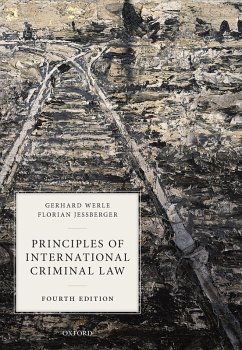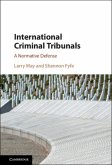Principles of International Criminal Law is one of the most influential textbooks in the field of international criminal justice. This fourth edition builds on the highly-successful work of the previous editions, setting out the general principles governing international crimes as well as the fundamentals of both substantive and procedural international criminal law. It provides a detailed understanding of the sources and evolution of international criminal law, demonstrating how it has developed, and how its application has changed. The book assesses in detail the four key international crimes as defined by the statute of the International Criminal Court: genocide, crimes against humanity, war crimes, and the crime of aggression. The new edition revises and updates the work with developments in international criminal justice since 2014. It includes substantial new material on critical perspectives on international criminal justice, the fragmentation of international criminal law, new war crimes of prohibited means of warfare, and the prosecution of crimes committed in Syria and Northern Iraq.The book retains its highly-acclaimed systematic approach and consistent methodology, making it essential reading for both students and scholars of international criminal law, as well as practitioners and judges working in the field.
Dieser Download kann aus rechtlichen Gründen nur mit Rechnungsadresse in A, B, BG, CY, CZ, D, DK, EW, E, FIN, F, GR, HR, H, IRL, I, LT, L, LR, M, NL, PL, P, R, S, SLO, SK ausgeliefert werden.









